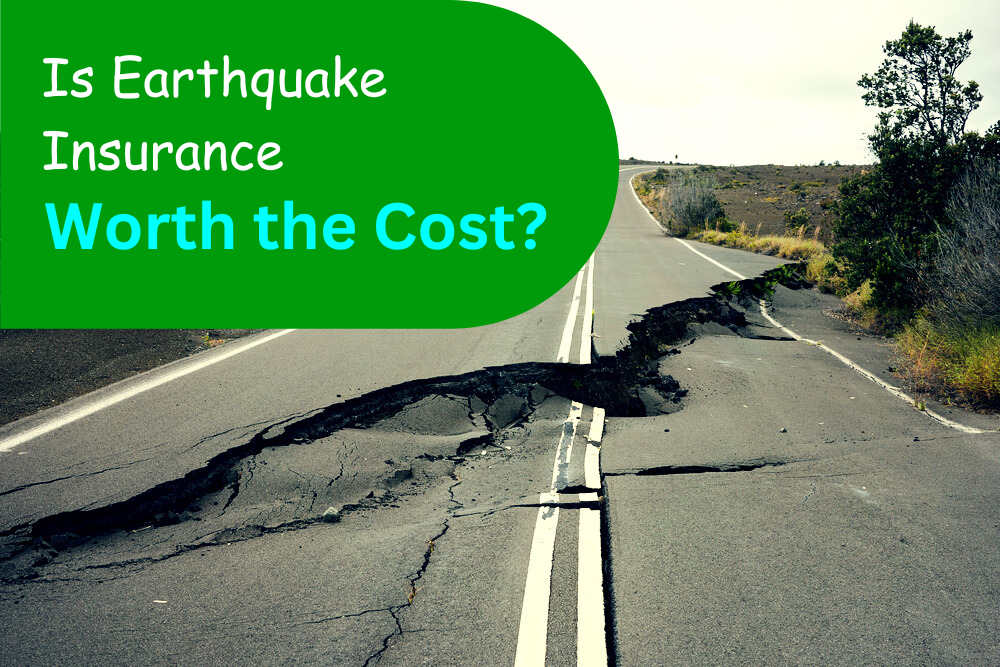
Natural disasters can strike at any time, and the devastation that earthquakes can cause is nothing short of catastrophic. If you’re a homeowner, you might be wondering, is earthquake insurance worth the cost? After all, it’s an additional expense on top of your home insurance premium. We’re going to explore earthquake insurance coverage and costs to help you decide whether it’s a wise investment.
Likelihood of an Earthquake
Location is going to have the biggest impact on your chances of experiencing an earthquake. The closer you are to a fault area the more risk you have. In the midwest, the New Madrid Seismic Zone stretches about 125 miles. It affects Missouri, Illinois, Indiana, Ohio, Arkansas, Kentucky and Tennessee.
The New Madrid Seismic Zone experienced three major earthquakes in 1811 and 1812. These were believed to be a 7.0 magnitude or larger. This area has several hundred earthquakes per year, most of which are too small to be felt. It’s estimated there’s a 10% chance of having a significant earthquake here in the next 50 years.
In the west, California has the massive San Andreas Fault area that is about 800 miles long. According to the United State Geological Survey, there is a 75% chance of a 7.0 earthquake or greater in the next 30 years. On December 20th, 2022 a magnitude 6.4 earthquake struck just off the coast.
The Pacific Northwest has its share of fault area that has produced significant activity as well. Washington experienced a magnitude 6.8 quake in 2001. Oregon had a 6.0 in 1993. The Cascade Subduction Zone is a large fault area that can produce up to a magnitude 9.0.
Alaska is one of the most active earthquake areas in the world. A magnitude 7 quake occurs almost every year and a magnitude 8 or greater every 14 years.
Other high risk areas are South Carolina, Montana, Idaho, Wyoming and Utah. Most states in the U.S. have had earthquakes and have the potential risk in the future as well.
Insurance Coverage for Earthquake Damage
Earthquake insurance is designed to provide coverage for damages to your home and personal property caused by an earthquake. This typically includes damages to your home’s structure, as well as any personal property damaged or lost. This can include your furniture, electronics, and other personal belongings.
It’s important to note that most earthquake insurance policies come with a high deductible, which means you’ll be responsible for paying a significant part of the damages before your insurance kicks in. Most policies will have a deductible of 5% – 20% of the value the home’s insured value.
For example, a $400,000 home with a 10% deductible would equal $40,000. As you can see, this coverage is only going to kick in if there’s significant damage. However, earthquake claims tend to be large so that is more reason to purchase coverage.
Properly managing risk includes insuring against the largest losses. Many people spend $100/yr to insure their $1,000 smart phone. Earthquake insurance may be a couple hundred dollars per year to insure a home that is worth several hundred thousand.
How to Purchase Earthquake Insurance
Depending on your insurance company you may be able to add earthquake coverage to your homeowners policy. However, some companies don’t offer coverage and you’ll have to purchase it through a separate insurer.
Sometimes it’s in your best interest to have separate homeowners and earthquake policies because the coverage is better, the deductible is lower, or the cost is lower. Your agent can help you navigate through all these options to find the best plan for you.
Earthquake Insurance Cost
The cost of earthquake insurance will vary depending on several factors such as:
- Replacement cost of your home
- Construction type (solid brick, frame etc.)
- Age of home
- The risk of earthquakes in your area
This could range from $100/yr to several thousands.
Conclusion
The decision to purchase earthquake insurance should be based on your unique circumstances. Ultimately, it’s up to you to weigh the costs and benefits and decide what’s best for you and your family. Whatever you decide, it’s always a good idea to be prepared for any natural disaster by having a plan in place and emergency supplies on hand.
Related Articles
Does Homeowners Insurance Cover Roof Leaks?
Should I Buy Flood Insurance?
Does Homeowners Insurance Cover Sump Pump Backup?
